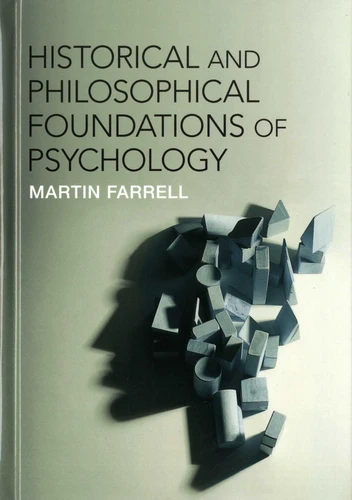Historical and philosophical foundations of psychology
Par :Formats :
- Paiement en ligne :
- Livraison à domicile ou en point Mondial Relay indisponible
- Retrait Click and Collect en magasin gratuit
- Nombre de pages448
- PrésentationRelié
- FormatGrand Format
- Poids0.97 kg
- Dimensions18,0 cm × 25,6 cm × 3,0 cm
- ISBN978-1-107-00599-0
- EAN9781107005990
- Date de parution01/06/2014
- ÉditeurCambridge University Press
Résumé
This textbook connects the big ideas and key thinkers of psychology and philosophy in a clear and cohesive theoretical narrative. Students are led to understand the relations between different schools of thought, and to connect the various thinkers, theories and facts in psychology's history. Focusing on the major ideas that have reoccurred throughout history, Martin Farrell shows how specific thinkers have explored the same ideas, but in different ways, leading to distinct schools of thought.
The coherent narrative enables students to see the bigger picture, through which the historical and conceptual roots of psychology can be easily understood. Makes explicit connections between idea and schools of thought, so students can understand how these relate to one another. Describes the fundamental philosophical presuppositions from which ideas have emerged, helping students to understand why certain ideas have been put forward.
Presents biographical details in boxes to help students differentiate between biographical information and theoretical knowledge. Includes recent developments in psychology, such as the rise of embodied cognition.
The coherent narrative enables students to see the bigger picture, through which the historical and conceptual roots of psychology can be easily understood. Makes explicit connections between idea and schools of thought, so students can understand how these relate to one another. Describes the fundamental philosophical presuppositions from which ideas have emerged, helping students to understand why certain ideas have been put forward.
Presents biographical details in boxes to help students differentiate between biographical information and theoretical knowledge. Includes recent developments in psychology, such as the rise of embodied cognition.
This textbook connects the big ideas and key thinkers of psychology and philosophy in a clear and cohesive theoretical narrative. Students are led to understand the relations between different schools of thought, and to connect the various thinkers, theories and facts in psychology's history. Focusing on the major ideas that have reoccurred throughout history, Martin Farrell shows how specific thinkers have explored the same ideas, but in different ways, leading to distinct schools of thought.
The coherent narrative enables students to see the bigger picture, through which the historical and conceptual roots of psychology can be easily understood. Makes explicit connections between idea and schools of thought, so students can understand how these relate to one another. Describes the fundamental philosophical presuppositions from which ideas have emerged, helping students to understand why certain ideas have been put forward.
Presents biographical details in boxes to help students differentiate between biographical information and theoretical knowledge. Includes recent developments in psychology, such as the rise of embodied cognition.
The coherent narrative enables students to see the bigger picture, through which the historical and conceptual roots of psychology can be easily understood. Makes explicit connections between idea and schools of thought, so students can understand how these relate to one another. Describes the fundamental philosophical presuppositions from which ideas have emerged, helping students to understand why certain ideas have been put forward.
Presents biographical details in boxes to help students differentiate between biographical information and theoretical knowledge. Includes recent developments in psychology, such as the rise of embodied cognition.

